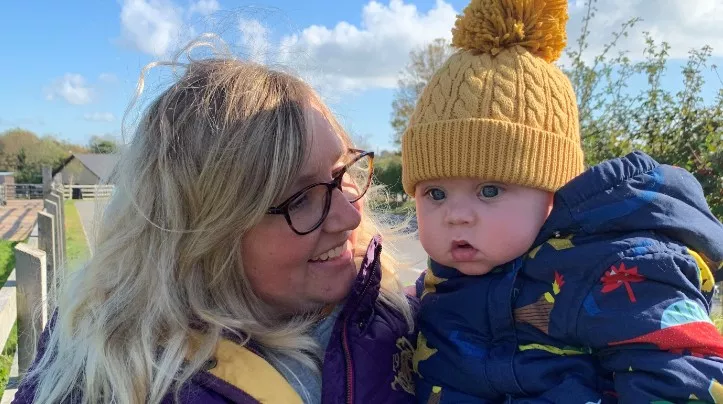
Meg, who lives in the south west, opens up about her experience of gestational diabetes which came about during a complicated pregnancy.
The journey to my first pregnancy was difficult. And the pregnancy itself was no different. At 24 weeks I was admitted to hospital for bed rest as I had gone into pre-labour. I spent my time being given hormones to hold off the birth, and my main focus was essentially to hold in my baby for as long as I could.
It was during this time that I was given the test for gestational diabetes. As I live with polycystic ovary syndrome (PCOS) I was already taking metformin, which is also often prescribed for gestational diabetes. I had to stop taking this before I was tested, so my levels naturally got higher. I was given a gestational diabetes diagnosis there and then, although I was only 0.1 over the threshold.
What followed was a visit from two Diabetes Nurses who made me feel like it was my fault that I’d ended up with gestational diabetes because of what I was eating, and I was told my baby would grow too big. I was already in a really vulnerable situation; when I was first admitted to hospital I thought I was going to have a miscarriage, and while I was on bed rest there were a number of complications. I wasn’t in a good place to feel such judgement and shame. I could barely retain the information the nurses were giving me on how to manage the gestational diabetes, but I was given a monitor to track my blood sugar levels and that was that.
When my son arrived at 29 weeks during lockdown, I was ‘locked-in’ to the hospital alongside him for the next five weeks. My husband couldn’t even come in to see us. I had a phone call with my GP after the birth, but there weren’t any discussions about the gestational diabetes. Four years later, I’ve still not had a postnatal check-up or follow up.
I’m pretty surprised that I’ve never had any postpartum checks, particularly as I’m considered high risk for type 2 diabetes. Not only because of the gestational diabetes, but also because I have family members with type 2 and I have PCOS, which means I’m at increased risk of developing type 2.
There are so many different factors that influence whether you get gestational diabetes, it’s not just about consuming too much sugar. I just hope that by sharing my story it will help people understand the condition more. I also hope no one else is ever made to feel the shame I experienced. When you’re pregnant, and especially if it’s your first pregnancy or you’ve had to deal with lots of complications, you need all the support you can get from the healthcare professionals who are supporting you.
If you’ve had a gestational diabetes diagnosis, find a local support group near you.
When you have gestational diabetes, it’s important to know what care to expect: Gestational diabetes care | Diabetes UK
